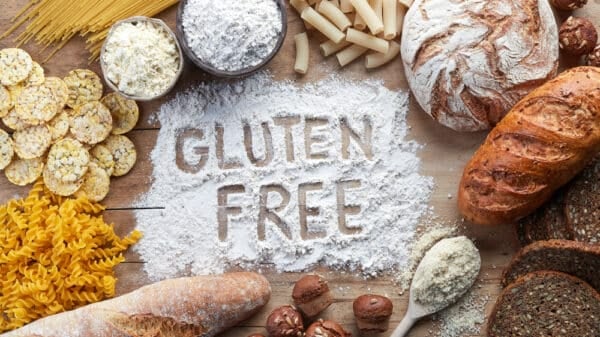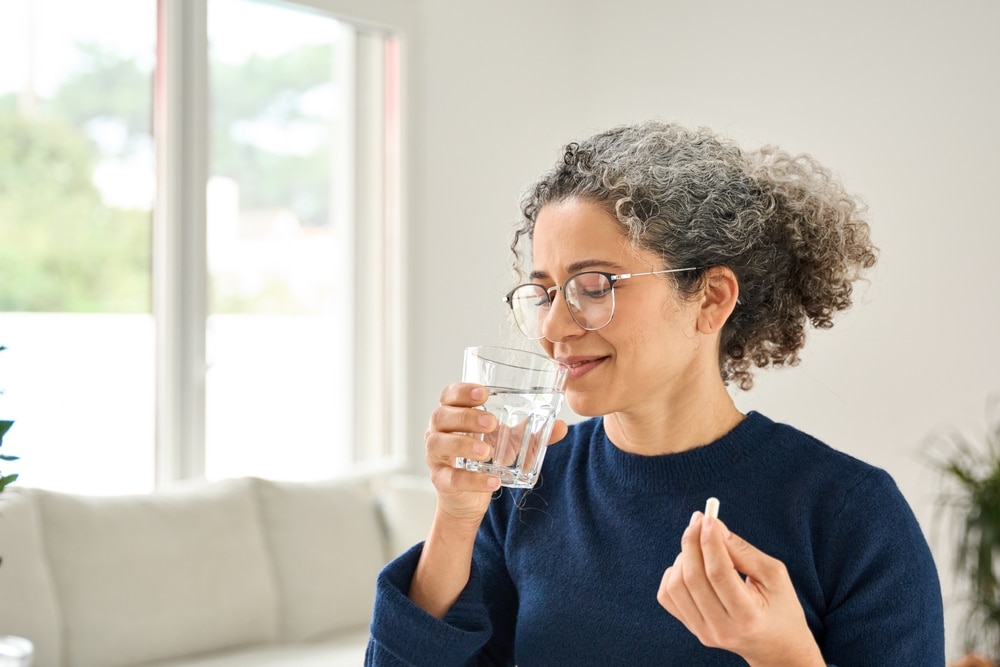As someone who has navigated the murky waters of supplements during a tough health journey, I can say that knowledge is something that often gets overshadowed by popular trends in wellness. It’s easy to feel like we’re being bombarded with advice telling us that a magical pill can fix everything. However, while some dietary supplements have their place, taking too many can lead to serious consequences. Dr. John W. Downs, M.D., an experienced director at the Virginia Poison Center, emphasizes that just like prescription medications, more isn’t always better. Overindulging in vitamins and other nutritional supplements can be just as harmful as ignoring a doctor’s recommendations and overdosing on prescribed medications.
It’s not uncommon to come across headlines claiming miraculous benefits from specific supplements, which can distract us from the simple truth: our bodies have their own systems for receiving nutrients, primarily from food. For instance, some people load up on vitamin D supplements hoping to boost their mood or immunity, while others might believe that antioxidant pills are a cure-all. Yet, the reality is that our bodies often process these nutrients better when they come from whole foods rather than synthetic sources. It’s a fine line we walk—between wanting to feel better and risking our health in the process.
Plus, let’s not forget about the personal experiences many of us share. It’s easy to get caught up in the supplement craze when friends or family rave about their latest finds. The conversation may start with dinner discussions about a new superfood, then effortlessly shift to who’s taking what and why. It’s relatable, really. We want to believe that we can optimize our health with these little pills, but we also need to keep in check the potential overdose on a substance we think might help us.
My journey—20 supplements a day—was extreme and, in hindsight, it could have been mitigated with a little more understanding about dietary needs and the role of supplements. Research shows that, while 68% of American adults believe dietary supplements to be very or moderately effective, many of us aren’t aware that we might be doing more harm than good by consuming them indiscriminately. Education can empower us to make better choices about our health, to recognize when supplementation is unnecessary, or worse, potentially dangerous.
In examining the conversation surrounding supplements, we must prioritize individualized health. For example, supplements like Omega-3 fatty acids can have benefits for those who lack sufficient sources in their diets, such as fatty fish, whereas others may not need them at all. This difference reinforces the importance of personalized dietary planning, ideally in consultation with a healthcare provider who understands your unique health history and can guide you accordingly.
It’s clear that supplements can serve a beneficial purpose when used thoughtfully and strategically. But before you dive headfirst into the next trending supplement, consider reaching out to a medical professional or dietitian. Gather insights, discuss your current health challenges, and work out the best route toward achieving a balanced diet that suits your lifestyle. The path to wellness doesn’t have to be about chasing the latest trends; sometimes it’s as simple as listening to your body and fueling it the right way.
By taking that proactive step and embracing proper nutrition, we give ourselves the best chance at optimal health—not just through pills, but through the food that nourishes us. And that’s a journey that’s worth embarking on.
And it turns out that some of the supplements that can be toxic if you take too much aren’t just the obscure, hard-to-pronounce ingredients you might imagine. In fact, they include some common household names. For instance, excessive vitamin A can have severe repercussions, potentially leading to liver damage or increased pressure in the brain—yikes! A significant number of us readily consume vitamin D since studies show around 40% of the U.S. population might be vitamin D deficient, mainly due to inadequate intake through our diets. Ironically, though, overdoing it isn’t the wisest strategy either. Taking too much vitamin D can lead to high levels of calcium in your bloodstream, resulting in kidney problems or even changes in mental clarity—you definitely want to steer clear of that.
Both vitamin A and vitamin D fall into the category of fat-soluble vitamins. According to nutrition expert Czerwony, this means our bodies keep them stored in fat cells, instead of flushing them out through urination like water-soluble vitamins (think most B vitamins and vitamin C). This can lead to an accumulation of these vitamins over time, which can hit us with “super-high levels and side effects.” It’s wild to think that something so seemingly innocent can become harmful if we don’t keep an eye on our consumption.
Victor, who handles liver health daily, has a front-row seat to the chaos that some supplements can cause. One notable example is turmeric supplements—while they are generally safe for most adults when taken in moderation, he points out that even small amounts, like 500 mg daily (which is a common dosage), of curcumin—the active component of turmeric—can cause liver damage in sensitive individuals. Keep in mind that these supplements have way higher concentrations of curcumin than the spice itself, and the curcumin present in our food is less readily absorbed by our system.
And it goes beyond just turmeric—consider green tea extract. Often lauded for its antioxidant properties, overdoing it can lead to liver damage too, especially if one exceeds a daily intake of 800 mg, or drinks around 24 cups of regular green tea. It’s not surprising that many of us are drawn to these natural options in the hope of boosting our health. However, moderation is key, and overeating health foods can lead to unintended consequences.
Downs emphasizes an equally important point: some nutritional supplements contain unexpected ingredients that might trigger adverse health effects. It’s a bit like a treasure hunt for your wellness, and you need to read those labels closely. Though it’s always a good idea to scrutinize the ingredients, remember that the lack of FDA oversight on supplements means we need to be extra careful about the products we choose. Most importantly, thinking of health in shades of gray rather than black and white is crucial. Collaborating with your healthcare provider can be a game changer. They can share insights about potential risks and keep tabs on how supplements are impacting your body, often through helpful blood work.
Reflecting back on a period when I over-supplemented myself, I remember feeling nauseous and wondering what was happening to my body. Czerwony suggests that this could have been a sign of my excessive intake. She explains that unpredictably, it can show up in various forms, like nausea, vomiting, or even headaches. For some, gastrointestinal issues may balloon into diarrhea, while headaches might linger. It’s fascinating—yet disconcerting—that symptoms from supplement toxicity can crop up sporadically, especially with fat-soluble vitamins that take their time to accumulate in our systems.
If you’re also taking prescription medications, it’s crucial to tread carefully. Experts unanimously express concern over potential dangerous interactions. For instance, St. John’s wort, a herb often sought after for its antidepressant properties, can alter the effectiveness of numerous medications by interfering with liver enzymes. This isn’t just a mild interaction; it can drastically change how medicines work in your body.
Furthermore, the danger intensifies when you consider that St. John’s wort can interact dangerously with antidepressants themselves, potentially leading to life-threatening conditions, like serotonin syndrome. Symptoms can range from agitation to heart palpitations and even hallucinations, which is as scary as it sounds. It’s not just antibiotics that could find themselves sidelined by supplements either—Czerwony observes that patients undergoing cancer treatment might inadvertently undermine the efficacy of their chemotherapy due to supplement interactions.
So, what does safe supplement use look like? Is it even possible? Absolutely—if paired with the guidance of a knowledgeable medical professional. Here are a few pointers to keep you safe:
– **Choose supplements wisely**: It’s more crucial than ever to source your supplements from legit places. Downs recommends checking in with your doctor or a registered dietitian to determine the right dosage tailored for you. Given that the FDA doesn’t regulate or verify supplement claims, look for reliable certifications like NSF or USP for peace of mind. And if it sounds too fantastical to be true? It probably is.
– **Get tested regularly**: Keep tabs on your supplement’s impact on your health. Victor advises getting blood work done one month to 12 weeks after introducing a new supplement into your routine. Sharing with your doctor what you’re taking can help catch any signs of trouble early, particularly with liver health.
– **Access valuable resources**: Make use of available resources to educate yourself and stay safe. The National Institutes of Health runs a dedicated website, LiverTox, where you can look up supplement toxicity. And if you need guidance on drug-supplement interactions, don’t hesitate to reach out to your local certified poison control center (1-800-222-1222).
In summary, when managed aptly and with guidance from a doctor, nutritional supplements can be a beneficial addition to a balanced diet. Looking back, it’s clear that the depression exacerbating my health challenges may have been improved through a carefully monitored vitamin D regimen. However, despite my trial of over twenty different supplements in one go, several of them likely interfered with my antibiotics rather than helping me.
Image Source: insta_photos / Shutterstock































